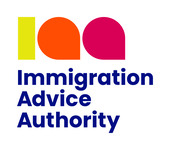Table of Contents
How to Prove Your Marriage is Valid for UK Immigration Purposes
If you are applying for a UK Spouse Visa or seeking to join a partner in the UK , you need to prove prove your marriage is valid. The Home Office calls this the genuine and subsisting test. Only genuine and subsisting relationships are valid and the Home Office will not grant a visa if they believe the marriage is a sham or was entered into solely for immigration purposes.
In this comprehensive guide we explain how to prove your marriage is valid for UK immigration. We cover what documents are required, and how to avoid common pitfalls. Whether you’re applying from inside or outside the UK, this guide will help you prepare strong supporting evidence.
Why You Need to Prove Your Marriage Is Valid
Under the UK Immigration Rules, particularly Appendix FM, a spouse or partner applying for a visa must show that:
- Their marriage or civil partnership is legally recognised in the UK.
- Their relationship is genuine and subsisting.
- Both parties intend to live together permanently in the UK.
The Home Office caseworker can refuse your application, if they are not satisfied that you meet of all these points under E-ECP.2.6. or R-LTRP.1.7. of the rules.
🔗 You can read the full guidance under Appendix FM
Types of Relationships Covered
When applying for a visa under the Partner route of Appendix FM, you must demonstrate your relationship falls under one of the following categories:
- Married partners: A legal marriage recognised in the UK.
- Civil partners: A recognised civil partnership.
- Unmarried partners: At least 2 years of cohabitation in a relationship akin to marriage.
- Fiancé(e)s or proposed civil partners: Intend to marry within 6 months of entry.
In this article, we focuse on married and civil partners, but many principles also apply to unmarried partners.
Step-by-Step: How to Prove Your Marriage is Valid for UK Immigration
1. Provide a Legally Recognised Marriage Certificate
The first step is to show that your marriage is legally recognised in the UK.
- UK marriages: If you and your partner got married in the UK, you must provide your UK marriage certificate.
- Overseas marriages: If you and your partner got married abroad. Your marriage must meet two criteria, namely:
- Must be valid under the law of the country where the marriage took place
- must not excluded under UK law.
If your marriage certificate is in another language, you should include a certified English language translation.
Tip: Some countries issue informal religious or community-based certificates that are not legally binding. These are not acceptable alone.
More on recognising foreign marriages: UKVI Guidance on Marriages
2. Demonstrate the Relationship Is Genuine and Subsisting
While a certificate shows that your marriage or civil partnership is legally certified, it is not sufficient as evidence of a genuine and subsisting relationship. You and your partner must go beyond just the certificate and prove an ongoing emotional and practical commitment to each other. Evidence can include:
- Joint Correspondence & Documents: These could include joint utility bills, council tax, or tenancy agreements, letters addressed to both parties at the same address, and travel bookings or visas showing joint holidays
- Personal Communication: Screenshots of chat logs (WhatsApp, emails, social media), call logs and video call history, letters, birthday or anniversary cards. Ensure communications are spread over time and clearly show continuity in the relationship.
- Photographs Together: Photos of you as a couple over time, include family events, holidays, day-to-day activities. Captioned with dates and names if possible. Home Office caseworkers look for a timeline showing progression in the relationship rather than staged photos.
- Statements from Friends and Family: Written letters from family or friends supporting your relationship. Should include full names, contact details, and their relationship to you. While these carry less weight, they help build a narrative around your relationship.
3. Show Ongoing Contact (If Living Apart)
For long-distance couples or where one partner is overseas, you must show:
- Regular communication (texts, calls, emails)
- Evidence of visits (flight itineraries, hotel bookings, photos)
- Money transfers or gifts
- Plans to reunite and cohabit in the UK
If you’re living apart, proving contact is crucial to show the relationship is subsisting.
We have a related guide:
How to Prove a Long-Distance Relationship for a UK Spouse Visa
4. Include a Relationship Timeline or Cover Letter
A well-written relationship timeline or cover letter can connect all the dots and explain:
- How you met
- Major milestones in your relationship
- When and where you got married
- Any periods you lived apart and why
- Future plans to live together in the UK
This helps the caseworker understand your story and provides context to your evidence.
Red Flags to Avoid
The Home Office may question your relationship if:
- You got married shortly after meeting.
- You have limited or poor-quality supporting documents.
- You provide conflicting information in your forms and evidence.
- One party has a poor immigration history or deception on record.
What if You Cannot Provide All the Documents?
In some cases, you may not have all the required documents to include in your application. If you lack standard documents (e.g. no joint tenancy or bills), try to provide alternative evidence, such as:
- Individual bills to the same address
- Travel history
- Personal declarations from both partners
The key is to build a credible and consistent story, backed by as much objective evidence as possible.
What Happens If the Home Office Is Not Convinced?
If the Home Office doubts your relationship, they may:
- Request further evidence
- Invite you for an interview (known as a marriage interview or credibility interview)
- Refuse the application
A refusal letter will outline the reasons. You may be able to appeal the decision or submit a fresh application.
In conclusion
The satisfy the requirements for the UK spouse / partner visa, you need to prove that you and your partner are in a genuine and subsisting relationship. To prove your marriage is valid for UK immigration, you need to go beyond a marriage certificate and build a well-evidenced, credible relationship history. By gathering the right documents and telling your story clearly, you can give your application the best chance of success.
Don’t leave anything to chance. If you’re unsure what to include or how to structure your application, get in touch with our experienced team.
Author

Tochi Okoronkwo
Tochi is an OISC certified immigration adviser with expert knowledge of UK Immigration Law and a genuine desire to make your immigration journey as smooth and stress-free as possible.
Stay Updated
Related Articles
Quickly browse the latest offers, read in-depth articles, and case studies to get the full story.


